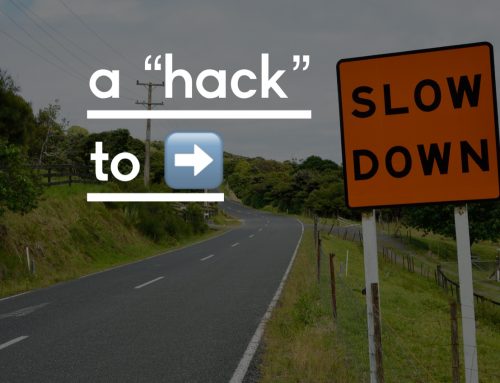Look Natural While Reading

A challenging aspect of hosting is reading from a teleprompter. When reading from the prompter, the worst thing somebody can say about you is, “That person is reading a teleprompter.” Your number one goal is to make it look like you’re not reading.
Just to take a quick step back, if you don’t know what a teleprompter is, it’s basically a device that prompts you by showing you the text of your speech, or script. The screen with the text on it is made of glass and usually in front of a camera lens, so you are essentially looking at the camera while reading. If you’re good at reading a teleprompter, it can make your life much easier as a broadcaster. However, if you don’t read it correctly it can make you seem disinterested, insincere, and robotic. Let’s make sure you don’t suffer that fate.
First, you must stay focused. If you’re not careful it’s easy to drift off as you read because the teleprompter can take all the thinking out of your performance. After all, it’s providing all the words for you and all you need to do is recite them. Due to this, you might find yourself switching to autopilot and that disconnect will be obvious in your delivery, with a lack of emphasis, pausing, and vocal inflection. Stay locked in and bring the words to life. Remember to think of yourself as a storyteller and treat the script as a story.
Next, make sure to read with your face, not your eyes. If you switch to autopilot, you can lose all facial expressions as you read and look wooden. Make sure to use a variety of facial expressions, if they’re consistent with the messaging of the words. Smile, frown, do whatever the story calls for; just be visually engaging.
Be mindful not to chase the text, and to let it come to you. Most teleprompters have an arrow to indicate where your eyes should read the words. That arrow represents your ideal eyeline. Wait for the text to reach that arrow, don’t look down to find it. It’s always easy to spot someone who does this, and it’s an immediate “tell” that they’re reading. It requires practice, but it makes a huge difference in your performance.
Remember, the only person who will see the words on the teleprompter is you. If you need to capitalize certain words for emphasis, go for it. If you need to write out a word or a name phonetically, I highly recommend doing that. It’s an awful feeling to mispronounce a word or a person’s name. Even if you know how to pronounce an unusually spelled name, in the heat of the moment when you’re reading the teleprompter on live TV you may incorrectly pronounce it as it’s spelled. Write it phonetically to ensure this doesn’t happen.
Finally, understand that the teleprompter may crash on live television, and plan accordingly. In fact, if you work in TV long enough, I guarantee you it WILL crash, and when it does, you’ll need to keep talking. It is essential to have a copy of the script on your anchor desk and to remember to turn your pages manually as the story advances automatically on the prompter. This way, when the teleprompter crashes you can look down and read from your script until the prompter gets back online. Otherwise, if you aren’t using a back-up script, you’ll have to rely on adlibbing or memorization, and depending on the story, both of those can get you into trouble.
Reading a teleprompter is a skill that can be mastered with practice. When you do master it, it will be a huge asset because it frees your mind and body to focus on performance. Rather than expending energy trying to come up with what to say next or attempting to recall how the story was originally written, you can dedicate all that energy toward being a powerful storyteller.
If you’d like to work on your hosting, just reach out to me here.
Have a great day!
Dave




